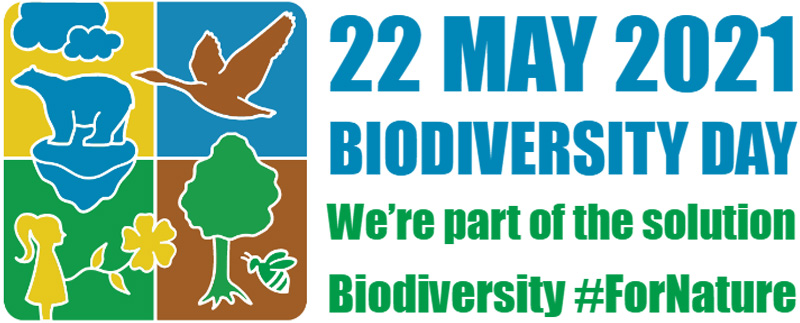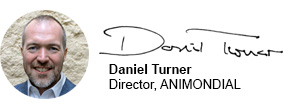Biodiversity – Tourism is part of the solution #ForNature

On International Day for Biological Diversity (22 May), we are reminded that ‘we’re part of the solution’ #ForNature, where tourism can be a force for good.
…
From the air that we breathe, the water we drink, to the food that we eat, we all rely on biodiversity. It refers to the variety of life on Earth – beginning with the genes that define the millions of different species of plant and animal, and their communities, within a wider fabric of interconnecting relationships in a physical environment, which we commonly called ‘Nature’. As with all other animals, humanity is part of it, reliant upon it, and due to our global dominance, we are its problem, as well as its solution.
The travel and tourism sector already know the importance of nature and what it uniquely brings to many travel destinations across the world. Nature is integral to our prosperity and wellbeing, but it also supports human development and equality, our resilience to viral pandemics and climate change1, and supports the lives of millions of other species. In fact, The World Economic Forum estimates Nature’s economic value generation at US$44 trillion2 – over half of the world’s total GDP!
Ironically, it is the improved global economic growth, the rise in living standards and increased demand for natural resources over the last 50 years that has directly driven biodiversity loss3:
- Land-use change – the conversion of land cover (e.g. deforestation), a change in eco-system management (e.g. intensive farming), or changes to landscape configuration (e.g. fragmentation);
- Over-exploitation of natural resource – overfishing, hunting, and logging, including the harvesting of species for traditional medicine and the pet trade;
- Climate Change – global warming changing climate and weather patterns that then impacts on ecosystems;
- Pollution – nitrogen deposition through fossil fuels and fertiliser causing ecological changes;
- Invasive species – introduced species displacing native wildlife and disrupting natural ecosystems.
Poorly managed, and tourism contributes to all five of these direct drivers of biodiversity-loss. However, when better managed: seeking to minimise negative impact, and maximising the value given to nature and its biodiversity, tourism can ultimately be a force for good.
In fact, there is an opportunity for the travel and tourism sector to do much more than just count and reduce carbon output, there is an opportunity to better protect animals and regenerate the natural systems that naturally absorb carbon and bring back stability to life on Earth.
ANIMONDIAL, the specialist consultancy, supports the travel and tourism businesses to better protect animals and nature. Its impartial guidance and community-led conservation projects offer a means for the tourism sector to review and improve their activities and embrace the “silver bullet”4 to lessen biodiversity-loss and climate change, and save ourselves.
This “Endangered Species Day” (21 May), as we stop for a moment to consider the fact that more than 37,000 species are now threatened with extinction5– there is no more pressing a time to do what we can to better protect animals and nature.
What can I do to better manage my impact on animals and nature?
Reduce your company’s negative impact on nature
- Adopt animal welfare and protection principles, advocated by ANIMONDIAL, and offer only responsible tourism activities with animals and respectful wildlife viewing practices that uphold good welfare standards. Receive a bespoke service from ANIMONDIAL.
- Evaluate, or audit, all your tourism activities / experiences that involve animals to identify and measure risk, end inappropriate activity, and seek to improved standards in animal welfare.
- Discourage your suppliers from sourcing animals from the wild; unless there is a demonstrable and justifiable conservation need. If in doubt, contact the national CITES Management Authority6.
- De-list tourism activities / experiences that involve the hunting of wild-born or captive-bred animals for the purposes of sport, trophy, or entertainment.
- Request that your suppliers do not commercially trade, breed or exploit their animals (this includes zoos, aquaria, animal sanctuaries, rescue centres and orphanages7).
- Product procurement teams and Destination Management Companies should inform all suppliers to ensure they do not sell or promote the sale of any of these unsustainable wildlife products. Refer to the European Commission’s Wildlife Souvenir’s Guidevii and use tools to identify threatened species8,9.
- Ask your customers not to pick up, collect or buy animals or parts of animals (including corals, sponges, shells, etc.) or plants (including orchids, seeds, seedlings, etc.) from the wild. Use online tools to identify the conservation status of the species involvedi, vii, viii.
- Ask your airline partners not to transport live animals, trophies or products derived from animal or plant species that are listed under CITES Appendix I or classified as ‘Critically Endangered’ or ‘Endangered’ by the IUCN Red List of Threatened Species™.
Maximise your protection and restoration of nature
Select one of ANIMONDIAL’s trusted, community-based animal protection initiatives through its Animal Protection Network10. Such as Ape Action Africa, that protects gorillas and chimpanzees, supporting local livelihoods, and protecting primary forest. The following video features Alex Benitez, Sanctuary Manager at Ape Action Africa, Cameroon, and provides an introduction to the organisation.
Collaborate with others to make a difference
- Sign up to ANIMONDIAL’s Build Back Better for Animals initiative and receive a 30-minute FREE consultation and discounted services.
Changing our relationship with nature is too great an issue to be left to the scientists and policymakers. We must all take responsibility, end destructive activity, and strive to return what we have lost. Business (no matter the size) has a crucial role to play, by putting nature at the core of their activity and decision-making, assessing, mitigating, and managing animal and nature-related risk.
ANIMONDIAL is here to help you identify tangible actions that are right for your business. Contact us today.
REFERENCES
- World Economic Forum (2020) COVID-19 and nature are linked. So should be the recovery.
- World Economic Forum (2020) Global Risk Report
- Steffen, W. et al. (2015), “Planetary boundaries: Guiding human development on a changing planet”, Science, Vol. 347/6223, pp. 1259855-1259855
- Professor Schellnhuber, Director Emeritus at Potsdam Institute for Climate Impact Research, ITB Berlin 2021
- IUCN Red List of Threatened SpeciesTM
- UNEP-WCMC & CITES Secretariat, providing information on C US Fish and Wildlife Service, CITES permits and certificates
- ANIMONDIAL (2019) Animal sanctuaries: more than just a name
- European Commission, The Wildlife Souvenirs Guide
- ANIMONDIAL (2020) Animal Protection Network

